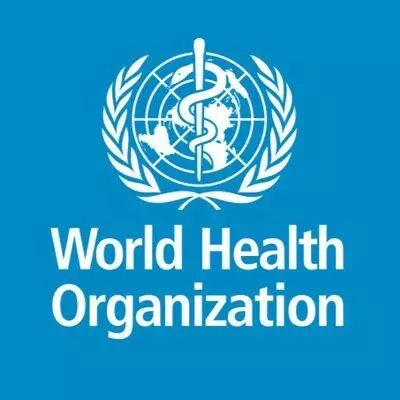
The World Health Organisation (WHO) on Tuesday called for “global solidarity and shared responsibility” to overcome not only COVID-19, but also AIDS – another global pandemic that is still with the world. WHO made the call in a statement issued from its headquarters in Geneva to commemorate the 2020 World AIDS Day, globally celebrated on […]

The World Health Organisation (WHO) on Tuesday called for “global solidarity and shared responsibility” to overcome not only COVID-19, but also AIDS – another global pandemic that is still with the world.
WHO made the call in a statement issued from its headquarters in Geneva to commemorate the 2020 World AIDS Day, globally celebrated on Dec. 1, to raise awareness of the pandemic, caused by the spread of HIV infection.
The UN health agency called on global leaders and citizens to rally for “global solidarity” to maintain essential HIV services during the COVID 19 pandemic.
“Also to rally solidarity to maintain HIV services beyond COVID-19 and to ensure continued provision of HIV services for children, adolescents and populations most at risk for the disease.’’
The Organisation also called on countries to provide health workers with greater protection and support, so that they can continue their work in safety during the pandemic.
“Protecting people from HIV during the pandemic, and ensuring they can maintain treatment, is critical. Researchers are currently investigating whether people with HIV have an increased risk of poor outcomes with COVID-19.
“Preliminary evidence of a moderate increased vulnerability of people with HIV makes it even more urgent that people with HIV have access to anti-retroviral (ARVs) drugs.
“They also have access to other treatments for co-morbidities – such as treatment for non-communicable diseases (NCDs), chronic obstructive pulmonary disease (COPD), diabetes and tuberculosis, ’’ WHO said.
According to the statement, WHO and its partners had sounded an alarm earlier this year, concerned at the impact of reported disruptions in HIV service delivery.
“But now, thanks to the unstinting work of health and community workers, the number of countries reporting disruptions in HIV services has declined by almost 75 per cent since June, the statement said.
It added: “Only nine of the 152 countries surveyed are still reporting disruptions (maps: June 2020 – November 2020); and in June, 24 countries reported less than three months supply of ARVs, but now only 12 report a critically low stock.
“This is mainly due to the implementation of existing guidelines, including providing multi-month dispensing (MMD) of ARVs for 3-6 months to patients who did not have access to health facilities.
“ Strong WHO-led global, regional, country, manufacturer and partner coordination is needed to ensure adequate supply of drugs stocks, and sustained provision of facility-based essential health services and community delivery mechanisms.
WHO noted that some countries had also introduced a number of effective adaptations and innovations in service delivery during COVID-19, including COVID-19 tests relying on laboratory systems built and developed for the HIV and Tuberculosis programme in several sub-Saharan countries.
“Devices have been shared across programmes as well as infrastructure, sample transport systems, and highly skilled staff.’’
The statement quoted Dr Meg Doherty, Director of WHO’s Department of Global HIV, Hepatitis and Sexually Transmitted Infections (STIs) Programmes, as saying “on World AIDS Day 2020, we pay tribute to the communities and countries.
“We pay tribute to the communities and countries who have shown resilience and innovation – often spearheaded by people themselves living with HIV.
“This is vital, because while we focus on fighting this new pandemic, we must not drop our guard on a twin pandemic that has been with us for 40 years and which is far from over.”
Progress towards global targets for diagnosis and treatment had slowed down considerably in 2020, the statement said, pointing out that new data is suggesting an estimated 26.0 million people were on anti-retroviral treatment as of mid-2020, up only by 2.4 per cent from an estimate of 25.4 million at the end of 2019.
“This increase is too slow by comparison to last year, when treatment coverage increased by an estimated 4.8 per cent between January and June, 2019.
“Among 24 countries with monthly data reported to UNAIDS and WHO, people currently on treatment have been supported and maintained, but testing has declined in all and newly enrolled on treatment has been halved.
“ In the last few months; however, there are positive signs of rebound in testing and treatment services,’’ WHO also said.
Meanwhile, the UN agency has expressed the hope that some of the innovative approaches adopted during COVID-19 could help the world catch up and accelerate progress towards new 2025 targets, as well as make progress on the SDG goal of ending AIDS as a public health threat by 2030.




